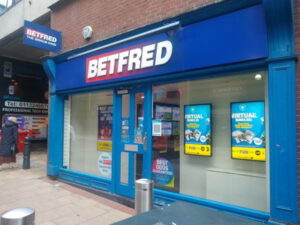 To those in the know, the names of Fred and Peter Done will be easily identified as being the people behind one of the country’s most successful betting companies: Betfred.
To those in the know, the names of Fred and Peter Done will be easily identified as being the people behind one of the country’s most successful betting companies: Betfred.
Fred Done is the more visible of the pair, often appearing in newspaper stories after making a decision to do something mad, like pay out early on his beloved Manchester United to win a competition such as the Premier League. Peter Done is well-known too, of course. You can’t really go from the slums of Manchester to being a billionaire and have nothing written or said about you by others.
That is what the pair managed to do.
Fred was born in 1943 and Peter came along four years later, with both men leaving school without any qualifications. They didn’t need any, being employed by their father in his illegal bookmaking virtually straight away. It gave them a solid grounding to become two of the industry’s most influential personnel, with the pair going on to split their responsibilities between Betfred and Peninsula Business Services; Fred taking on the former and Peter being responsible for the latter. The brothers are close, both being involved with the other’s business.
Peter Done
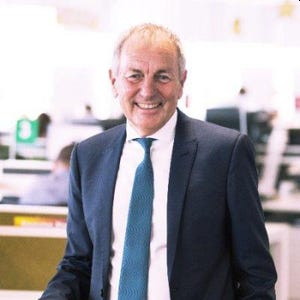 Born in Salford, Greater Manchester in 1947, Peter Done attended Trafford Road School. He left when he was 15-years-old, beginning work at his dad’s bookmaking firm. Because he was too young to go into the shop, he was given the job of adding up the ledgers whilst sat in the credit office. It involved working out how much punters had stakes and then won, in pounds, shillings and pence, but without a calculator. He did begin work in a shop for Ernie Peters when he was 17, later saying, “You weren’t even allowed in betting shops until you were 18, and I was managing one at 17.”
Born in Salford, Greater Manchester in 1947, Peter Done attended Trafford Road School. He left when he was 15-years-old, beginning work at his dad’s bookmaking firm. Because he was too young to go into the shop, he was given the job of adding up the ledgers whilst sat in the credit office. It involved working out how much punters had stakes and then won, in pounds, shillings and pence, but without a calculator. He did begin work in a shop for Ernie Peters when he was 17, later saying, “You weren’t even allowed in betting shops until you were 18, and I was managing one at 17.”
Four years later and he’d bought his own shop in the Pendleton area. He bought it with Fred, with the pair managing to get it because it was under-performing. He realised that one of the things that could set their shop apart from the shops of other bookies would be customer service. In those days, bookmakers would all but literally throw the money at a client if they won, treating them with disdain. Done realised that this was not a way to win repeat custom, so instead began calling punters ‘sir’ and bending over backwards in order to make sure that they felt welcome.
This way of behaving flew in the face of how other bookies acted, largely because betting shops were not a place ‘to show weakness’ back in the day. They had bought the shop for £4,000, £1,000 of which was from a deposit that Peter had been saving up to buy a house with his wife. Yet it was a risk that he was willing to take after gaining so much experience in the business and believing that he could do it better than others. The rules of mathematics were always on his side, though, as he knew that customers that kept coming back thanks to the good service would give them the money back in the long run.
Over the years, the Done brothers bought more shops but an incident in one of them led Peter to explore new avenues. They had to settle a case with an employee at a new shop they’d bought out of court, with the process leaving the pair feeling bruised. As a result, they made a decision to invest in a company that outsourced HR expertise as well as covering legal fees, offering it on a subscription basis. Professional Personnel and Management Services Limited was formed in 1983 in the wake of that £9,000 settlement, with Fred and Peter tossing a coin to decide who would get what.

Peter got the HR business, which began to find success once he’d begun to donate his time and energy to running it. The initial plan was for him to advertise its services on the road for six months before returning to work at the company that was now called Betfred. That never happened, with Peter instead staying with the company and helping it to grow from strength to strength. One of the key attributes to the popularity of the company that was renamed Peninsula Business Services in 2016 was the same thing that had served the Dones well years before: customer service.
He realised that by basing a pricing system on the number of people at a firm, Peninsula could work in a manner that would encourage growth in the businesses that they worked with. It led to around 87% of customers renewing their contract with them, thanks to Peter’s realisation that small businesses needed to feel value for money if they were going to keep spending it without looking elsewhere. He also oversaw a move to diversify their offering, with a wellbeing product and a digital service being added to what they gave their clients access to.
As you might imagine, Peter Done also made the move to take the business overseas. In 2012 they opened an office in Australia, buying a business there and investing around AU$15 million to grow it. It was a decision that paid off, given that by 2018 the Australian side of the company had made AU$26.3 million. Five years later and they opened an office in Canada, gaining a foothold in North America. At home, Peter launched Peninsula Academy in order to train up the next level of HR personnel and cutting 300 applicants down to 18. What Fred did for betting, Peter did for HR.
Fred Done
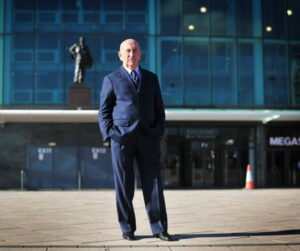 During the early part of his life, Fred Done’s experiences were very similar to that of his younger brother. Born in March of 1943, he also left school without any qualifications in order to work for his father in his illegal bookmaking service. As with Peter, he then went on to work with Ernie Peters in his betting shops, gaining the experience that he’s need to make a life in the world of betting. The story that perhaps most encapsulates the life of the Done brothers came about in 1966, when they placed a bet on England to win the World Cup, which the Three Lions duly did.
During the early part of his life, Fred Done’s experiences were very similar to that of his younger brother. Born in March of 1943, he also left school without any qualifications in order to work for his father in his illegal bookmaking service. As with Peter, he then went on to work with Ernie Peters in his betting shops, gaining the experience that he’s need to make a life in the world of betting. The story that perhaps most encapsulates the life of the Done brothers came about in 1966, when they placed a bet on England to win the World Cup, which the Three Lions duly did.
They used this money, along with the aforementioned deposit from Peter Done and his wife, to but their first betting shop. Though the Betfred company that bears his name is nowadays amongst the biggest gambling businesses in the world, it was slow and steady growth that cemented the approach taken in the early years. They bought another couple of shops, with Peter running one, Fred another and their sister the third. Carpet was installed in the shops, put alongside the desire to call punters ‘sir’ in order to give the business a more welcoming feel.
By the time the mid-80s came around, the Dones had opened more than 70 shops and in 1997, the company opened its 100th shop, demonstrating that slow and steady attitude. Of course, once enough shops had been opened to get their name out there, growth became exponential. Within eight years the company had opened its 500th shop, using a combination of good customer service skills and intelligent marketing. In 1998, for example, Fred Done, now in all-but sole charge of the company that would later be renamed after him, made the decision to payout early on Manchester United winning the Premier League.
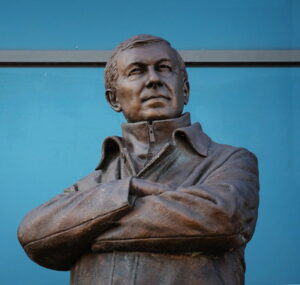 Though many bookies make such early payouts nowadays, Done was the first to do it. A passionate fan of the Red Devils, he felt that a 12-point gap over Arsenal was enough to see the title head to Old Trafford. The Gunners disagreed, overhauling their rivals to claim the title. Alex Ferguson was reportedly annoyed with Done for the early payout, but he won’t have minded when he looked at the press coverage that the company received for doing. Betfred reportedly lost £500,000 on the back of that decision, but it didn’t stop Fred doing it again in 2012, this time successfully.
Though many bookies make such early payouts nowadays, Done was the first to do it. A passionate fan of the Red Devils, he felt that a 12-point gap over Arsenal was enough to see the title head to Old Trafford. The Gunners disagreed, overhauling their rivals to claim the title. Alex Ferguson was reportedly annoyed with Done for the early payout, but he won’t have minded when he looked at the press coverage that the company received for doing. Betfred reportedly lost £500,000 on the back of that decision, but it didn’t stop Fred doing it again in 2012, this time successfully.
Fred also lost a £1,000,000 personal bet with Victor Chandler in 2004/5 when he bet that Man United would finish higher than Chelsea. Chelsea went on to win the league by 18 points leaving Fred £1M in the hole. He duly paid up. Despite losing a seven figure sum Fred wasn’t that annoyed given it gave him a huge amount of press attention, that he clearly enjoys.
His next big gamble came in 2011, when Fred spearheaded the move for Betfred to buy the Tote from the British government. By that point, the company was the fourth-biggest bookmakers on the high street, with nearly 850 shops to their name. Having been a consideration for a takeover by the likes of William Hill and Ladbrokes a decade earlier, Done was able to position his business to become one of the business when he bought the Tote primarily in order to get his hands on the shops that the Tote had around the United Kingdom. The £265 million deal was not welcomed by the horse racing industry.
It wasn’t just bets on United to win the title that Fred Done used to garner publicity. In 2014, the Betfred boss turned the tables and chose to refund bets on his beloved Manchester United to win the title, such was the extent to which the Red Devils had endured a miserable season. It was believed to have cost him £200,000, but he claimed that he did it because the fans were still passionately singing for their team whilst losing 3-0 to bitter rivals Liverpool at Old Trafford. Whilst most fans will have long ripped up their betting slip, the publicity it gained Betfred will have been priceless.
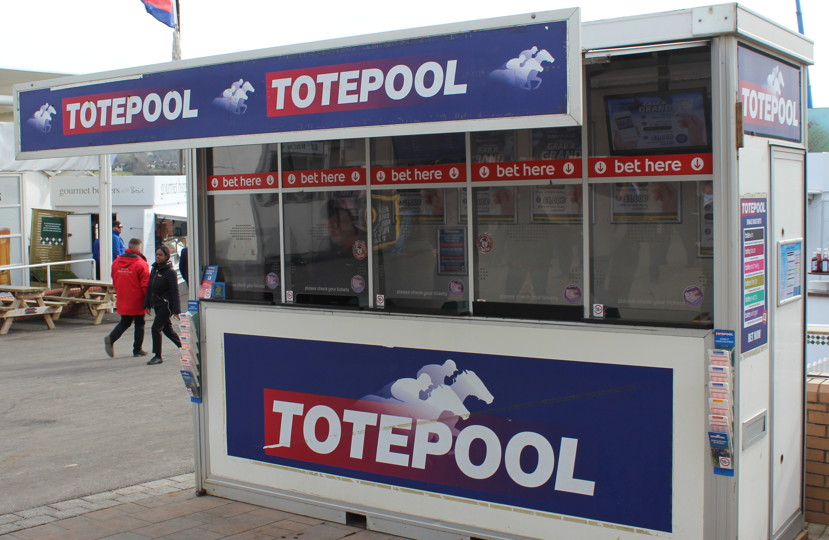
In 2019, Betfred allowed the Tote to enter a new era when it was sold to a consortium. A racing-backing group that labelled itself Together For The Tote made the move at a cost of more than £100 million, ending what was considered by many to be a miserable relationship between the horse racing industry and Fred Done. Done, of course, would be quick to disagree, but those in the know in the world of racing always felt that the Mancunian was far more interested in what he could get from the Tote financially than in supporting horse racing as a whole, whether fairly or not.
By 2020, the company had more than 1,650 shops that bore the Betfred banner. The brothers also made it on to the Sunday Times Rich List thanks to combined investments that were worth £1.25 billion, putting them third on the list of people that had made their money thanks to the gambling industry. Five years earlier, Fred Done had sold a 25% stake in the Tote for £30 million, so it isn’t as if he’d been struggling for money before then. 2020 was also the year that the brothers saw an influx of around £200 million, having bought shares in rival firm William Hill before it accepted a $3.7 billion bid from Caesars Entertainment Inc.
All good things must come to an end, of course. So it was that Fred Done decided to step down as the Chief Operating Officer of Betfred in March of 2021. He appointed Joanne Whittaker to the position, having previously given her money to set up her own business after the left Betfred in 2005. Done couldn’t walk away from the business that he had spent his entire life growing completely, of course. Instead, he became the Chairman, but not until he had secured sponsorship of numerous aspects of the Rugby Football League, including major trophies like the Challenge Cup.
To many, the Dones will always be a confusing pair. They have regularly given large sums of money to charities, such as when they promised to give £200 to the Jessie May children’s charity for every century break that was scored during the Snooker World Championship, which resulted in them handing over £40,000. They also once donated their entire profits from a day of the Cheltenham Festival to the Manchester Royal Children’s Hospital. Yet, the pair also financial support the Conservative Party, which flies in the face of the idea of them being kind-hearted philanthropists, giving them £375,000 between 2016 and 2020.